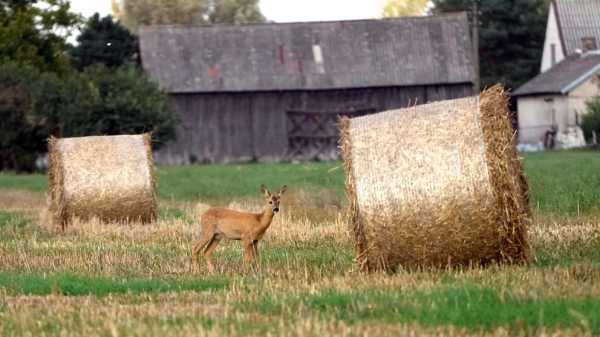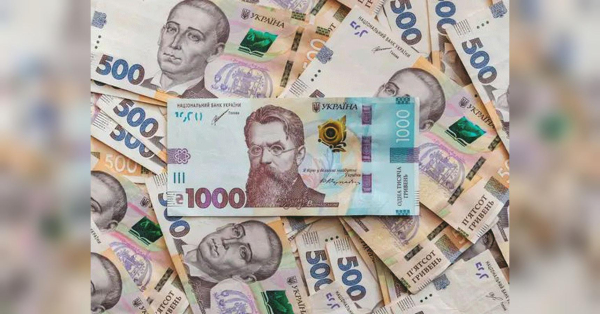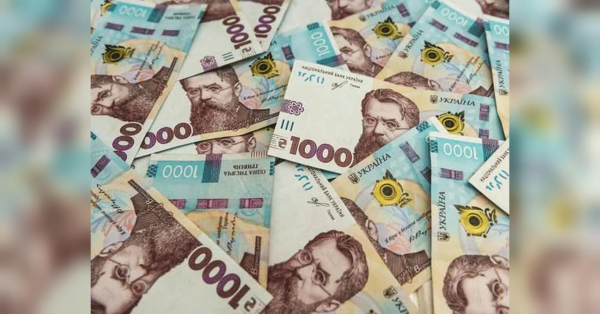
GENEVA — Ukraine is filing a complaint at the World Trade Organization against Hungary, Poland and Slovakia after they banned grain and other food products coming from the war-torn country, Ukrainian Prime Minister Denys Shmyhal said Tuesday.
It heightens a political showdown pitting farmer against farmer and widens a rift between Ukraine, a major global food supplier, and three members of the European Union, which has been a pivotal backer of Kyiv as it works to fight off Russia's invasion.
In a break with the wider EU, Poland, Hungary and Slovakia last week announced bans on imports of Ukrainian food to their local markets. They were joined Tuesday by Croatia. But all four will keep allowing those products to move through their borders to parts of the world where people are going hungry.
The four countries, two of which have elections within the coming weeks, say the bans are needed to protect their farmers from a supply glut that drives down local prices and hurts livelihoods. They took the step after the EU last week lifted restrictions on Ukraine's exports to five member states, including Romania and Bulgaria.
Bulgaria's government, however, is allowing Ukrainian imports again, saying the ban had spiked food costs, which triggered nationwide protests from farmers Monday.
But Croatia piled on, with Prime Minister Andrej Plenkovic saying it won't import Ukrainian grain that "is cheaper than ours, which would mean our farmers are in trouble,” according to the state HINA news agency. Recently, Croatia has offered its Adriatic Sea ports for the export of Ukrainian grain to other countries.
Ukraine’s prime minister blasted the “unfriendly” actions and announced an investigation of possible discriminatory practices.
But Shmyhal also floated a possible “compromise scenario” that would control four groups of exported farm products, aiming to limit market distortion in nearby countries. The EU ban had applied to wheat, corn, rapeseed and sunflower seeds.
The standoff was already driving a wedge between EU member countries, as governments seek farmers' votes in parliamentary elections in Slovakia this month and Poland next month.
Balazs Orbán, political director for Hungarian Prime Minister Viktor Orbán, tweeted that the EU move to lift the import ban was “totally unacceptable" and said the countries “had no other choice” but to defend their own farmers.
Slovakia's agriculture minister, Jozef Bires, said Ukraine had “no legal basis” for the WTO complaint.
Poland’s minister for European Union affairs, Szymon Szynkowski vel Sek, told the news agency PAP on Tuesday that Ukraine was hurting itself with the WTO move. He cautioned that without public backing for Ukraine, “it will be difficult for us to continue supporting Ukraine in the same way we have been doing so far.”
Poland has been among the most fervent supporters of Ukraine in its fight against Russia. It has taken in scores of Ukrainian refugees and has been a major thoroughfare for weapons and humanitarian aid shipments.
German Agriculture Minister Cem Özdemir on Monday criticized the countries' show of “part-time solidarity” with Ukraine, saying it needed all the help it could get and that Russian President Vladimir Putin was the “only one” who benefits from EU discord.
Ukraine, meanwhile, was preparing retaliatory measures.
In an interview with Poland’s Rzeczpospolita daily published Tuesday, Ukrainian deputy trade minister Taras Kachka said his country had lost hope in reaching a deal with Poland and said that within days, “Ukraine will introduce a ban on Poland’s farming produce like onions, tomatoes, cabbage and apples."
The standoff comes as agriculture-dependent Ukraine has been struggling to get its products to world markets and keep its beleaguered farmers — whose fields have been hit with Russian missiles — afloat economically.
In July, Russia pulled out of a U.N.-brokered deal allowing Ukraine to ship grain safely through the Black Sea. Routes through Europe have become the primary way for Ukraine to export wheat, barley, corn, vegetable oil and more to developing nations in need.
Shmyhal warned the three countries that “further blocking our agricultural exports by neighboring countries will harm the Ukrainian economy, finances, tax revenues and jobs. Such a blockade will also play into Russia’s plan to create another global food crisis.”
Ukraine in recent days has been pushing ahead with limited exports through its own maritime channel despite the risk of attack. Infrastructure Minister Oleksandr Kubrakov wrote Tuesday on Facebook that a vessel carrying 3,000 tons of Ukrainian grain left the port of Chornomorsk on its way across the Black Sea.
WTO headquarters in Geneva confirmed that it had received a Ukrainian request on Monday for “consultations” with Hungary, Poland and Slovakia over the issue. That set in motion a 60-day period of talks that, if unsuccessful, could culminate with Ukraine asking for a panel of adjudicators to intervene.
The WTO has long been the world’s main venue for countries to resolve trade spats. But the U.S. has blocked the appointment of new judges to its appeals court, and it can no longer hear new cases. Washington says the appellate body has gone too far in extending its authority on trade matters.
In light of the logjam, some countries, including EU members, have joined an alternative appeals process that could ultimately issue a final word in the Ukrainian case.
___
Novikov reported from Kyiv, Ukraine. Associated Press reporters Monika Scislowska and Vanessa Gera in Warsaw, Poland; Karel Janicek in Prague; and Dusan Stojanovic in Belgrade, Serbia; contributed to this report.
Sourse: abcnews.go.com






